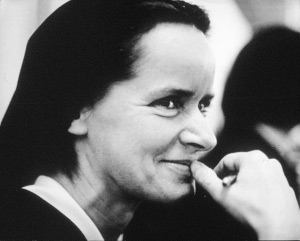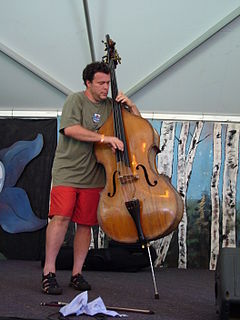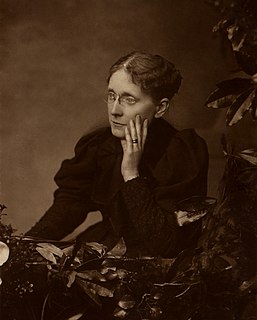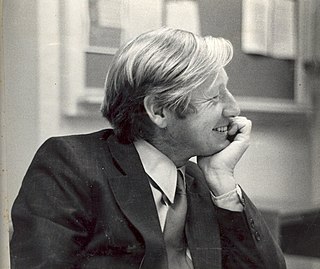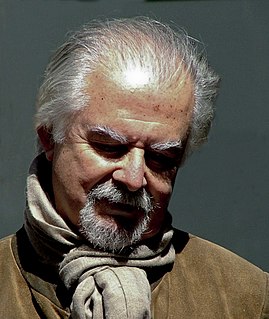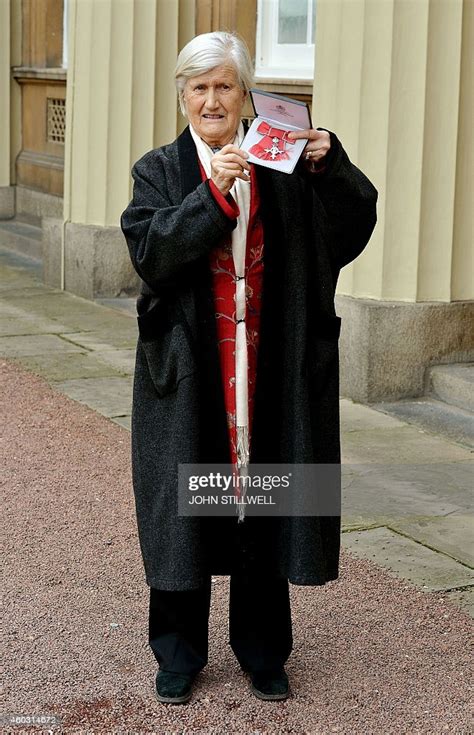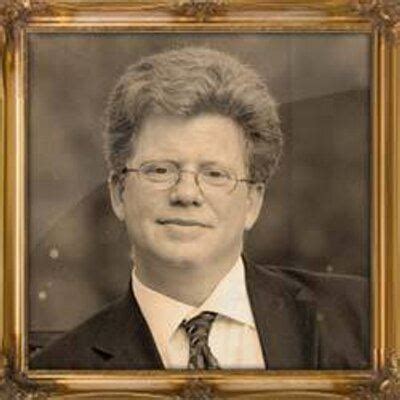Top 1200 Eighteenth Century Quotes & Sayings - Page 2
Explore popular Eighteenth Century quotes.
Last updated on April 19, 2025.
One of the regrets of my life is that I did not study Latin. I'm absolutely convinced, the more I understand these eighteenth-century people, that it was that grounding in Greek and Latin that gave them their sense of the classic virtues: the classic ideals of honor, virtue, the good society, and their historic examples of what they could try to live up to.
Why consider debates in the English House of Commons in 1628 along with documents on American developments in the late eighteenth century? The juxtaposition is not capricious, because the Commons during this period generated many of the ideas that were later embodied in the government of the United States.
Given that the nineteenth century was the century of Socialism, of Liberalism, and of Democracy, it does not necessarily follow that the twentieth century must also be a century of Socialism, Liberalism and Democracy: political doctrines pass, but humanity remains, and it may rather be expected that this will be a century of authority ... a century of Fascism. For if the nineteenth century was a century of individualism it may be expected that this will be the century of collectivism and hence the century of the State.
Fossil fuel is very seductive stuff. [John Maynard] Keynes once said that, as far as he could tell, the average standard of living from the beginning of human history to the middle of the eighteenth century had perhaps doubled. Not much had changed, and then we found coal and gas and oil and everything changed. We're reaping the result of that, both ecologically and socially.
Most of the music I've become interested in is hybrid in its originsClassical music, of course, is unbelievably hybrid. Jazz is an obvious amalgam. Bluegrass comes from eighteenth-century Scottish and Irish folk music that made contact with the blues. By exploring music, you're exploring everything.
A well-known magazine asks a man how they should refer to him, as Psychologist X, as Author X? He suggests man of letters, for that is what he is, in the eighteenth-century meaning. But they can't buy that because the word doesn't exist in Time-style; he cannot be that, and presumably the old function of letters cannot exist.
Nothing, indeed, could be more unlike the tone of the [Patristic] Fathers, than the cold, passionless, and prudential theology of the eighteenth century; a theology which regarded Christianity as an admirable auxiliary to the police force, and a principle of decorum and of cohesion in society, but which carefully banished from it all enthusiasm, veiled or attenuated all its mysteries, and virtually reduced it to an authoritative system of moral philosophy.
There are acacias, a graceful species amusingly devitalized by sentimentality, this kind drooping its leaves with the grace of a young widow bowed in controllable grief, this one obscuring them with a smooth silver as of placid tears. They please, like the minor French novelists of the eighteenth century, by suggesting a universe in which nothing cuts deep.
In the nineteenth century some parts of the world were unexplored, but there was almost no restriction on travel.:; Up to 1914 you did not need a passport for any country except Russia.:; The European emigrant, if he could scrape together a few pounds for the passage, simply set sail for America or Australia, and when he got there no questions were asked.:; In the eighteenth century it had been quite normal and safe to travel in a country with which your own country was at war.
The human brain finds it extremely hard to cope with a new level of abstraction. This is why it was well into the eighteenth century before mathematicians felt comfortable dealing with zero and with negative numbers, and why even today many people cannot accept the square root of minus-one as a genuine number.
Almost always tradition is nothing but a record and a machine-made imitation of the habits that our ancestors created. The average conservative is a slave to the most incidental and trivial part of his forefathers glory - to the archaic formula which happened to express their genius or the eighteenth-century contrivance by which for a time it was served.
I have seen Colonial churches since I was very small, Colonial painting and polychrome sculpture. And that was all I saw. There was not a single modern painting in any museum, not a Picasso, not a Braque, not a Chagall. The museums had Colombian painters from the eighteenth century and, of course, I saw Pre-Columbian art. That was my exposure.
This whole theory [of John Law and Jean Terrasson], as dear to French financial schemers in the eighteenth century as to American "Greenbackers" in the nineteenth, had resulted, under the Orleans Regency and Louis XV, in ruin to France financially and morally, had culminated in the utter destruction of all prosperity, the rooting out of great numbers of the most important industries, and the grinding down of the working people even to starvation.
There is simply no room left for 'freedom from the tyranny of government' since city dwellers depend on it for food, power, water, transportation, protection, and welfare. Your right to live where you want, with companions of your choosing, under laws to which you agree, died in the eighteenth century with Captain Mission. Only a miracle or a disaster could restore it.
Talented people can predict with great accuracy what's about to happen just a tiny bit ahead of their competitors. It might be two seconds ahead, or two hundredths of a second, or two days. Napoleon on an eighteenth century battlefield had something more like a two-day advantage. Wayne Gretzky in a hockey game was probably a second ahead of everyone else on the ice.
Scottish operative lodges began in the seventeenth century to admit non-operative members as accepted or gentleman masons and that by the early eighteenth century in some lodges the accepted or gentleman masons had gained the ascendancy: those lodges became, in turn speculative lodges, whilst others continued their purely operative nature. The speculative lodges eventually combined to form the Grand Lodge of Scotland in 1736.
The eighteenth-century view of the garden was that it should lead the observer to the enjoyment of the aesthetic sentiments of regularity and order, proportion, colour and utility, and, furthermore, be capable of arousing feelings of grandeur, gaiety, sadness, wildness, domesticity, surprise and secrecy.
It was during the eighteenth century - a period of boastful satisfaction with the nice balances within the English constitution - that Englishmen came to accept the Whig view of the utility of an armed citizenry. The armed citizen was not only affirmed to be protecting himself but, together with his fellows, provided the ultimate check on tyranny.
Yeats regarded his work as the close of an epoch, and the least of his later lyrics brings the sense of a great occasion. English critics have tried to claim him for their tradition, but, heard closely, his later music has that tremulous lyrical undertone which can be found in the Anglo-Irish eloquence of the eighteenth century.
'The Marriage of Souls', like 'The Rationalist', is an exploration of humanist philosophy wrapped between the delicate leaves of an eighteenth-century tale. The story of the two novels - and they should be read as a two-volume work - centres around the old war-horse of boy meets girl, boy loses girl, boy finds girl. But what a boy and what a girl.
Pseudo-modernists pursue individual style because they know they cannot make a name without it; but if they had lived in the eighteenth century their sole object would have been to write correctly, to conform to the manner of the period. In practice, their conforming individualism means an imitation, studiously concealed, of the eccentricities of poems which really are individual.
The constitution of madness as a mental illness, at the end of the eighteenth century, affords the evidence of a broken dialogue, posits the separation as already effected, and thrusts into oblivion all those stammered, imperfect words without fixed syntax in which the exchange between madness and reason was made. The language of psychiatry, which is a monologue of reason about madness, has been established only on the basis of such a silence.
Historically the belief in heaven and the belief in utopia are like compensatory buckets in a well: when one goes down the other comes up. When the classic religions decayed, communistic agitation rose in Athens (430 B.C.), and revolution began in Rome (133 B.C.); when these movements failed, resurrection faiths succeeded, culminating in Christianity; when, in our eighteenth century, Christian belief weakened, communism reappeared. In this perspective the future of religion is secure.
M. J. Putney has created true magic with this book, the kind that comes when you curl up in a comfortable armchair and let the story take your imagination away. Come visit an enchanted eighteenth-century England and meet two desperate lovers caught in the web of a sinister lord with great magical power. Romantic and lyrical, this tale will fill your reading time with pleasure. I loved it.





